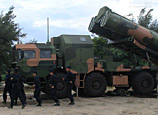
EU countries also attracted investment in utilities and transportation infrastructure. Through 2012, Chinese State-owned enterprises and sovereign investment bodies put more than $5 billion in those industries, including a stake by China's sovereign-wealth fund in Heathrow Airport in London.
The US attracted almost no investment in transportation infrastructure and the $3 billion of Chinese investment in utilities targeted companies with assets mostly outside the US.
Executives of China's sovereign wealth fund China Investment Corp repeatedly said the company will seek investment opportunities in the European infrastructure market.
Differences in European and US security concerns are also a factor, the report said.
US skepticism about Chinese capital is due to the fact that investment ties between the countries are seen in the broad context of geopolitical relations, said Karl Sauvant, resident senior fellow at Columbia University's Vale Columbia Center on Sustainable International Investment.
"The strategic competition between the two countries has influenced the view with which Chinese investment is being seen here," said Sauvant, a German national who has lived and taught in the US for decades. Strategic competition with China isn't an issue in Europe, he said.
R. Mason Cargill, a partner in Jones Day law firm in Washington, told China Daily that the US government welcomes Chinese investment in general but "national security concerns will be a major challenge to Chinese investors in the US in addition to cultural differences concerning business."
Li Zhongzhou, a senior trade and investment expert and former official from the Ministry of Commerce, said the US need not be too concerned because the scale of Chinese investment is quite small.
"But the US government should change its mindset about China," said Li. "Chinese companies could help to create jobs in the US, rather than what is feared, steal technology and jobs."
Huo agreed by saying that the US "didn't make any sense in many of its arguments toward Chinese investment".
A report by two members of the US House of Representatives Intelligence Committee last October cited two Chinese telecom equipment firms, Huawei Technologies Co and ZTE Corp, as posing a potential national-security threat to the US. Both companies operate in Europe. That followed US President Barack Obama's executive order in September for Chinese-controlled Ralls Corp to divest its wind farm investment near a US Navy weapons-testing facility in Oregon.
Ann Lee, an adjunct professor at New York University and author of What the US Can Learn from China, said Europeans are less concerned because their political leaders, unlike those in the US, aren't trying to defend their position as the world's lone superpower. "The US must always have an enemy to maintain its high moral ground among its citizens," she said.
The Rhodium report, however, finds that the US has outpaced Europe in attracting Chinese investment for several high-tech clusters, including aviation and information-technology services.
The report by New York-based Rhodium also found greater Chinese interest in the advanced-services sector in the US.
Last year saw the $2.6 billion purchase of movie-theater chain AMC Entertainment Holdings by China's Dalian Wanda Group and the $4.2 billion Chinese takeover of International Lease Finance Corp from insurer American International Group.

















 Beijing Film Academy releases list of re-examination
Beijing Film Academy releases list of re-examination


![]()
